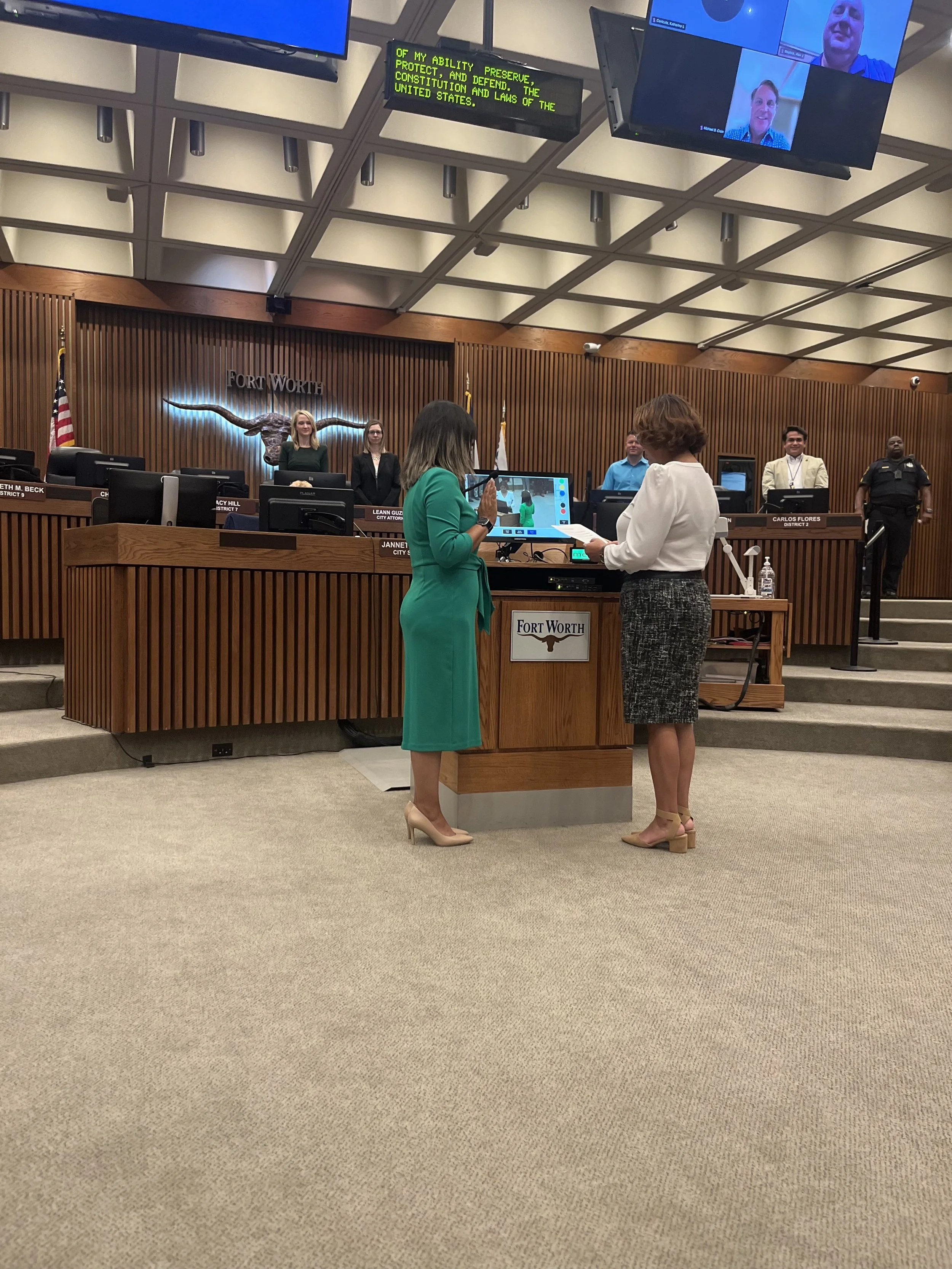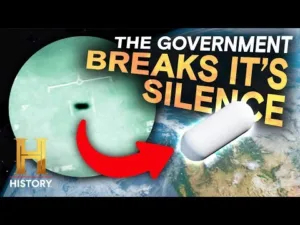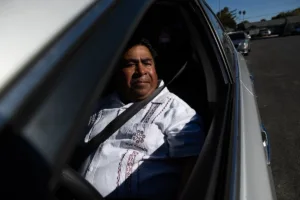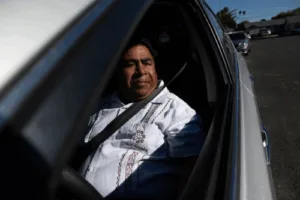
July 12, 2023
Friends:
On Tuesday afternoon, June 20, Jeanette Martinez was sworn in as representative of the newly created City Council District 11 in Fort Worth at the city council chambers.
That was a historic occasion because we started trying to create this, the second Hispanic city council district, shortly after the 1990 U.S. Census. This event marked the fulfillment of that goal. Jeanette also made history by being the first Latina elected to the Fort Worth city council.
FORT WORTH CITY COUNCIL REDISTRICTING
For some of us who have been involved in city council redistricting the election of Jeanette Martinez was a milestone, monumentally huge, perhaps bigger than anything I’ve seen since I came to Fort Worth after my military discharge in 1968?
Redistricting has been a tool to reduce the systemic racism we’ve had discrimination in many ways and disenfranchisement. It has given us a stronger voice on the city council. Many of us believe that the Hispanic culture is an important part of Fort Worth, and it should be represented fairly at City Hall. We believe that a Hispanic council member with familiarity of the culture and the ability to communicate in Spanish to do outreach to the majority of the district’s population would be best suited to effectively represent this new district. Winning this seat is not merely symbolic. It really gives Hispanics more political power—not only more representation but more confidence because Hispanics had to rally people to win this race at the ballot box and unquestionably more respect. Without doubt this victory was badly needed because of the already significant and growing Hispanic population in the city. The city council is where everything starts and now Jeanette is also a role model to other Hispanics.
Having worked for over thirty-five years at the grassroots level organizing and leading groups to achieve many goals, as an organizer of the first alliance of neighborhoods in the city and having served on two city boards for a total of sixteen years, I think I have a good grasp of the impact of city government on the lives of people.
Redistricting and its importance is not easily understood and that has made it challenging. We’ve had so many setbacks along our journey, and we’ve had to get back up and continue the fight to get to where we are today. Sometimes our redistricting group was reduced to two people, my wife, Roberta, and me. But, overall, many people have helped us in this quest for more Hispanic representation on the city council. We couldn’t have done it without them, and we can’t thank them enough. Those people are to be lauded and I deeply admire and respect them. Enough of them answered our CALL TO ACTION and stepped up at times when it was not safe to support what we were doing, often in a hostile atmosphere. Redistricting is not for the timid and faint of heart. It’s for those who have fire in their gut and are willing to stand up and speak truth to power, risk-takers with passion, courage, and a true measure of individual leadership.
To counter the bias and polarized voting that our research indicated existed, during 2000 census cycle redistricting, after a bitter fight, we took the precincts north of Bellaire in Tanglewood out of then City Council District 9 and put them in district 3. This was necessary to make district 9 more Hispanic friendly. That was not enough, of course, but it was all we could get. At that time about 70% of the total votes cast in typical elections in that district came from there. And the data indicated that they did not support Hispanic candidates. By stating this, I am not implying that Anglos are racists. On the contrary, many Anglos, Blacks and others have helped us during redistricting. For example, our success during the 2020 census cycle can to a large extent be attributed to the help we received from a coalition of Hispanics, Anglos, Blacks, and others. I’ll explain that in more detail later when I complete writing and release the history of Fort Worth Hispanic city council redistricting.
After that census cycle we joined forces with the United Hispanic Council of Tarrant County, a Hispanic civil rights organization, which had been involved in FWISD redistricting and other issues since the early 1970s. That’s where I met and started working with Juan Perez, Sam Garcia, Rufino Mendoza, Juan Rangel and others. That group had the same goals we had—mainly, to fight for more Hispanic representation. And most importantly, another person I met at the United Hispanic Council was Mario Perez. He has been a leader in redistricting, starting around 2005, but mainly helping to coordinate at the grassroots. There are other very important things associated with redistricting that must be done. For me it starts with a deep dive into research, to eliminate preconceived notions (opinions). We need accurate date to come up with a research-driven strategic plan. That’s very time consuming. Next comes drawing the proposed map or several of them to submit to the city. Mario worked on redistricting before he graduated college in 1998 (UTA) and certainly before he attended law school. There is no doubt that he has been a major contributor to our city council redistricting success.
He helped us during the in 2010 census cycle, a time when the city had redistricting software online for citizens to draw maps and then submit to them. Before submitting the maps, we spend many hours analyzing and making adjustments to them. During that census cycle, we took out another chunk of precincts west of 8th Avenue, around TCU out of district 9. But that, too, wasn’t enough! But that’s when we noticed a new trend developing: Although the Hispanic population citywide was increasing, Hispanics were more spread out throughout it in other districts, but not in a way that would allow us to create a new Hispanic majority district anywhere under the Voting Rights Act of 1965. That’s when we decided that in order to create a second Hispanic opportunity district, we had to expand the number of city council districts from eight to ten in the city. We led the campaign to do just that and were victorious in a city charter amendment election by the skin of our teeth—by less than 200 votes! In negotiations prior to the charter amendment election, we agreed that the change would to be implemented after the 2020 census cycle, in the city council election of May 6, 2023 .End of Part 1
By Fernado Flores email rfflorez@juno.com 817-239-0578






